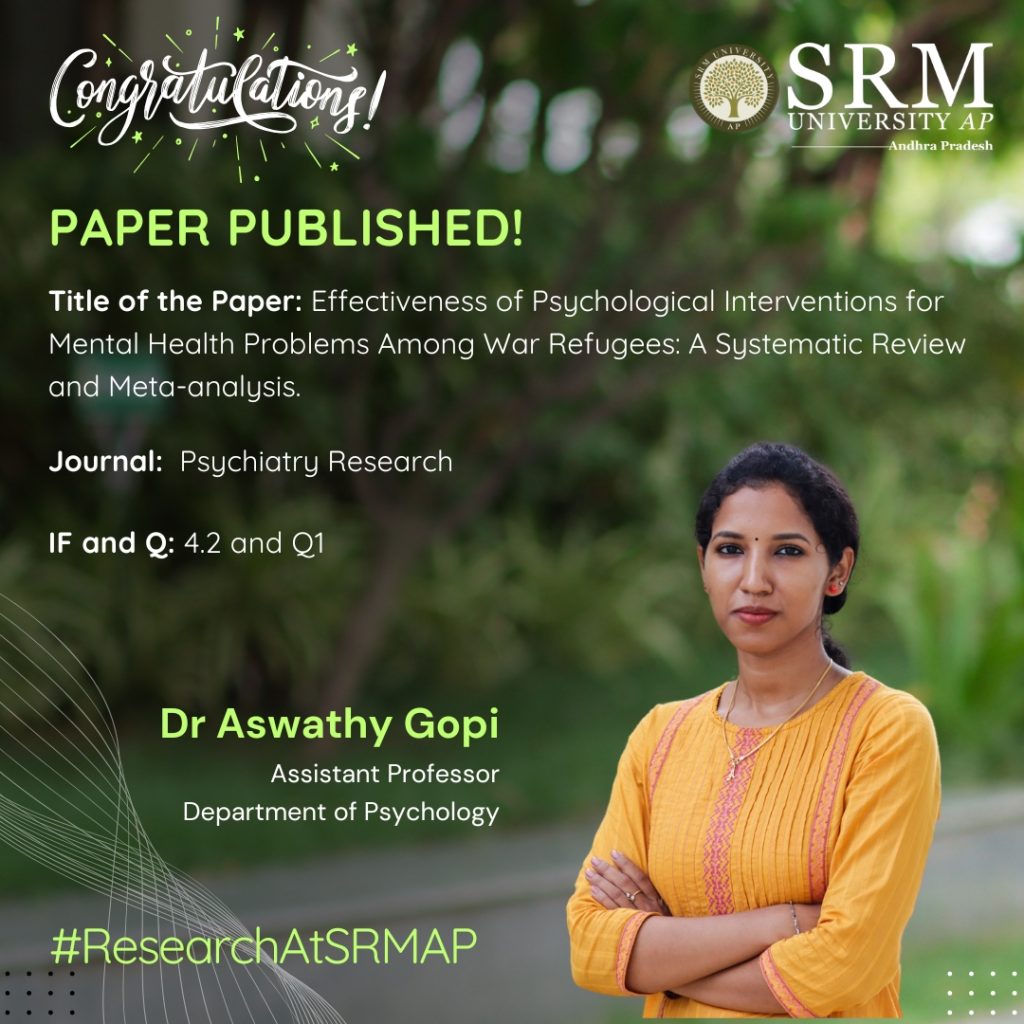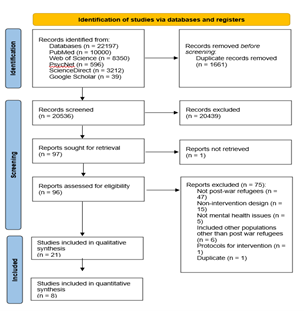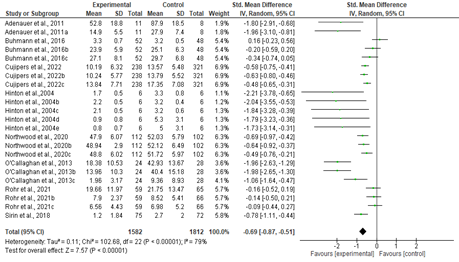 “I object to violence because when it appears to do good, the good is only temporary; the evil it does is permanent.”, this quote by Mahatma Gandhi serves as a stark reality that war leaves individuals grappling in severe trauma. Dr Aswathy Gopi, an Assistant Professor at the Department of Psychology, explores this impact in her research paper titled “Effectiveness of Psychological Interventions for Mental Health Problems Among War Refugees: A Systematic Review and Meta-Analysis.” Her paper sheds light on the profound effects of war on the mental health of refugees, emphasising the need for tailored approaches to support their psychological well-being.
“I object to violence because when it appears to do good, the good is only temporary; the evil it does is permanent.”, this quote by Mahatma Gandhi serves as a stark reality that war leaves individuals grappling in severe trauma. Dr Aswathy Gopi, an Assistant Professor at the Department of Psychology, explores this impact in her research paper titled “Effectiveness of Psychological Interventions for Mental Health Problems Among War Refugees: A Systematic Review and Meta-Analysis.” Her paper sheds light on the profound effects of war on the mental health of refugees, emphasising the need for tailored approaches to support their psychological well-being.
Abstract:
War and displacement have led to a global mental health crisis, with 117.3 million individuals displaced and one in five refugees experiencing psychological distress. Despite the availability of psychological interventions, their overall effectiveness remains unclear. This systematic review and meta-analysis evaluate the impact of psychological interventions on war refugees’ mental health. A comprehensive search of PubMed, Web of Science, APA PsycNET, ScienceDirect, and Google Scholar (July 2024) identified 21 studies for systematic review and eight randomized controlled trials for meta-analysis. The results indicate a significant medium effect size of psychological interventions (SMD = -0.69, 95% CI: -0.87, -0.51, p < .00001), with in-person interventions showing a large effect (SMD = -1.03) and telehealth interventions demonstrating a small effect (SMD = -0.44) in reducing the mental health issues among war refugees. Findings support the effectiveness of psychological interventions, emphasizing the need for further research on digital mental health solutions to enhance accessibility for war refugees.
Explanation in layperson’s terms
War forces millions of people to leave their homes, and many of them experience severe stress, anxiety, and depression. In fact, one in five refugees struggles with serious mental health problems. While various psychological therapies exist to support them, it is unclear how effective they truly are. The current review identified the available in-person as well as telehealth-based psychological interventions that help war refugees in addressing their mental health conditions using evidence from 21 studies. A statistical examination of eight high-quality trials found that psychological support significantly helps refugees in reducing mental health issues. Although face-to-face therapy was reported to be the most effective, online therapy also demonstrated positive results, with a smaller effect. Given the limited number of studies on digital interventions, further research is warranted due to factors like displacement and limited healthcare resources of war refugee.
Practical Implementation and Social Implications
Psychological interventions involving both in-person and telehealth showed effectiveness for mental health problems among war-refugees. Policy makers and intervention developers should provide keen attention while designing interventions for mental health issues of war refugees as their challenges are distinct from other refugees and the general population. Further, the government and healthcare authorities can aim for adopting hybrid models integrating both telehealth and in-person interventions for the effective management of mental health problems of war refugees.
Collaborations
This secondary analysis was conducted in collaboration with Indian Institute of Technology Bhilai, Chhattisgarh.
Future research plans
Dr Aswathy Gopi is currently working on positive organisational health, with several research works under review in reputed high-impact journals. The research primarily explores organisational effectiveness and mental health outcomes across various populations. She is also collaborating with IITs and central universities to conduct both primary and secondary research in this domain.
The link to the article
https://doi.org/10.1016/j.psychres.2025.116432



